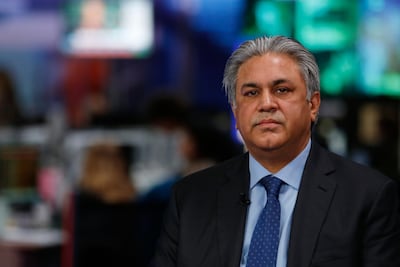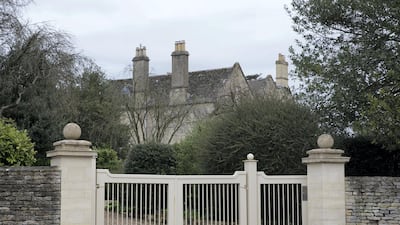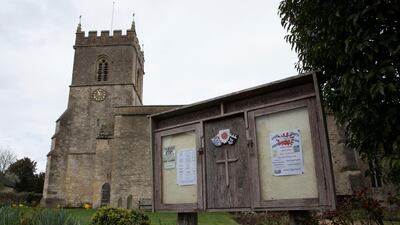Abraaj founder Arif Naqvi sold his British country estate for £12.25 million ($17m) after being prevented from living there during his extradition battle with the United States.
Mr Naqvi was placed under effective house arrest at his London apartment two years ago after his detention at Heathrow Airport on suspicion of fraud and money laundering over the collapse of the Dubai-based private equity company.
Property ownership documents show his semi-rural retreat of Wootton Place, Oxfordshire, about 100 kilometres west of London, was sold to a prominent businessman in September last year for a £2.75m profit on the price Mr Naqvi paid in October 2006.
The home – complete with extensive grounds, cricket pitch and bordering a church in the village of Wootton – was owned, on paper, by British Virgin Islands-registered company Blondell Assets Ltd.
But the Naqvi family were well-known residents in the attractive hilltop village. The globe-trotting Mr Naqvi, who also had homes in Pakistan, St Kitts and France, was rarely seen at the house but threw open its gates several years ago for villagers and members of Pakistan’s cricket team who played a match on the private field.
Since May 2019, the tycoon has remained at his London apartment in a gated mansion block in the Knightsbridge district after posting a record bail of £15m to secure his release from prison.

A judge said the strict conditions surrounding his release “effectively amount to house arrest” but they were partially eased during the months-long extradition process allowing him to visit a London mosque. He denies the charges against him.
Locals in Wootton said they had not seen any member of the family since his arrest in April 2019 and during subsequent coronavirus lockdowns.
Days before his arrest, Mr Naqvi declined to comment on the future of Wootton Place amid local rumours of a sale.
The Rev Stephen Jones, the vicar of Wootton, said: “They literally disappeared overnight and were not seen or heard of since. It must have been more than a year ago.
“When the Naqvis moved in, I was able to have some tea with Mrs Naqvi. I only met him once but I knew her very well.
“When she came, she said she wanted to help the community and used to run a regular curry supper in the village hall.”
The hall’s roof was replaced in 2012 thanks to an “immensely generous donation” from Mr Naqvi and his wife Fayeeza, a village newsletter said.
The vicar said ownership of Wootton Place had a "chequered history" with the previous owner, developer Scot Young, dying in 2014 after falling from the window of a fourth-floor flat in London.
Police believed he jumped but his former wife alleged that he was pushed on to railings below after falling foul of a Russian crime syndicate when a murky business deal went wrong.
The vicar met the current owner’s wife who told him they planned to keep a low profile.
Mr Naqvi, who was arrested at the London airport on his way to Dubai via Islamabad, faces 16 counts of fraud and related money laundering between 2014 and 2018.
He is accused of being the “leader of a criminal enterprise that corrupted Abraaj” and faces up to 30 years in prison if found guilty.
A district judge ordered his extradition in January, a decision upheld by Home Secretary Priti Patel, a ministry representative said.
Mr Naqvi appealed and the case is set for months of wrangling before the courts.
Abraaj was the largest buyout fund in the Middle East until it collapsed in the middle of 2018 after investors raised fears of mismanagement. By the time it stopped trading, Abraaj owed creditors more than $1 billion.
Prosecutors allege he was at the heart of a conspiracy to take money from funds and falsify financial records to hide the parlous position of his group of businesses.
They say that about $250m went for the benefit of Mr Naqvi's family and other sums were used to bribe a politician in Pakistan to obtain approval for the sale of Abraaj’s stake in an electrical energy utility company.









